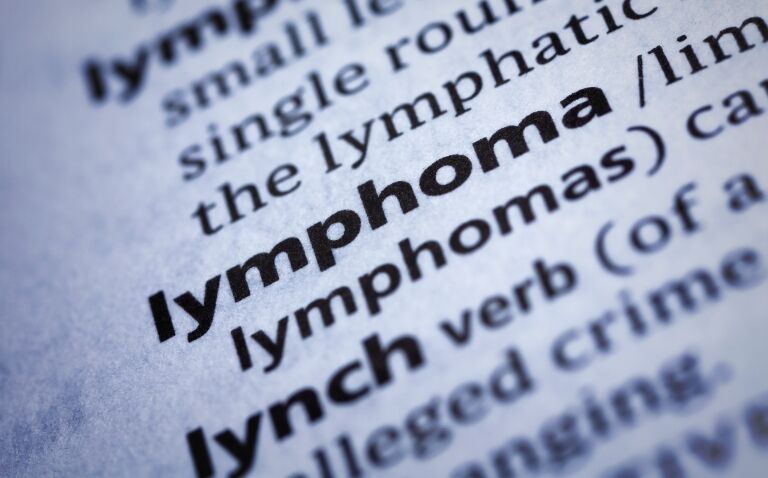The NHS will fast-track the bispecific antibody glofitamab (brand name Columvi) for treating relapsed or refractory (R/R) diffuse large B‑cell lymphoma (DLBCL) in adults after two or more systemic treatments following its recommendation by the National Institute for Health and Care Excellence (NICE).
Set to be made available in England ‘within weeks‘, glofitamab is the first off-the-shelf CD20xCD3 T-cell engaging bispecific antibody. Administered as an intravenous infusion, it works by encouraging healthy immune cells in the body to destroy the cancer cells.
While current DLBCL treatments such as CAR T therapies are provided in specialist centres across England, glofitamab can be offered at more cancer treatment sites across the country, improving timely access. It is thought that more than 700 people in England could benefit from the treatment.
NHS England’s Cancer Drug’s Fund Lead, Professor Peter Clark, said: ’The approval of this drug is great news for people living with an advanced and aggressive form of blood cancer, who are set to benefit from this new treatment.
’Not only does it provide a potentially life-saving option for patients who may have not responded to CAR T therapy, it is also an alternative for some CAR T eligible patients who choose instead to have glofitamab closer to home.
’This is the latest in a long list of cutting-edge drugs available on the NHS to help people with cancer live a longer and better-quality life.’
Helen Knight, director of medicines evaluation at NICE, added: ‘We are committed to getting the best care to patients fast while ensuring good value for the taxpayer.
‘Advanced B-cell lymphoma is an aggressive form of blood cancer and can progress quickly. The sooner people can access the best treatment for them, the better chance they have of living for longer and improving their quality of life.
‘This is why it is such good news that our independent committee has found that glofitamab is clinically and cost effective for treating people with this advanced form of cancer, and we welcome the news that NHS England will make this available to patients quickly.‘
Positive glofitamab trial results
The NICE recommendation coincides with glofitamab receiving its license by the Medicines and Healthcare products Regulatory Agency and is based on the positive results obtained from the Phase 1/2 NP30179 study.
Of the 154 participants who received treatment, 39% (95% confidence interval [CI], 32 to 48) had a complete response at a median follow-up of 12.6 months.
The majority (78%) of complete responses were ongoing at 12 months. The 12-month progression-free survival was 37% (95% CI, 28 to 46).
The most common adverse event was cytokine release syndrome (CRS) (63%). Adverse events of grade 3 or higher occurred in 62% of the patients, with grade 3 or higher CRS in 4% and grade 3 or higher neurologic events in 3%. Discontinuation of glofitamab due to adverse events occurred in 9% of the patients.
Referring to the rollout of bispecific antibodies as a breakthrough for patients with lymphoma, Dr Wendy Osborne, an NHS consultant haematologist specialising in lymphoma at the Freeman Hospital in Newcastle, said: ‘Bispecific antibodies use the patient’s own white blood cells to attack and kill the lymphoma, a form of blood cancer. The antibody has two arms: one arm attaches to the cancer cell and the other to the patient’s own white blood cell, a T-cell.
‘By bringing these cells together, the patient’s own immune system is activated and kills the cancer cell and so chemotherapy is not required. Patients don’t have the side effects of chemotherapy and often feel well on this outpatient-based treatment.‘
Glofitamab gained conditional marketing authorisation in the EU in July 2023.
Earlier in 2023, glofitamab was found to induce a fast and durable complete response rate in patients with refractory mantle cell lymphoma.










